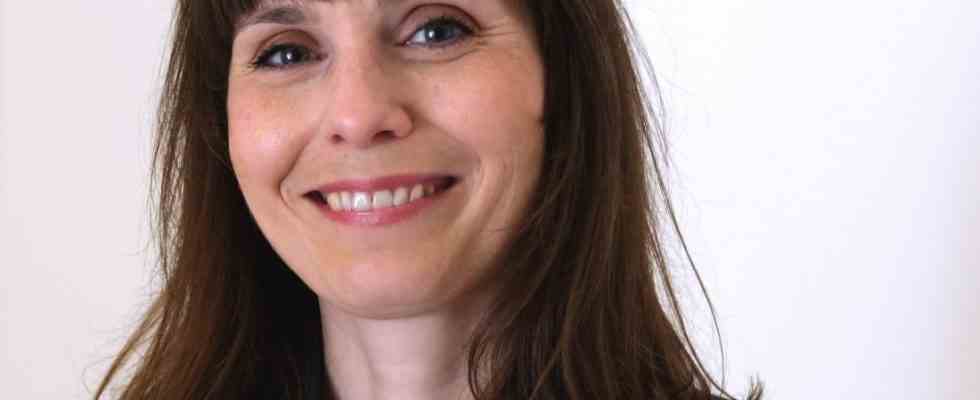Art
The State Painting Collections have two new curators. At the Alte Pinakothek, the art historian Gabriel Dette took over the management of the department for old German and old Dutch painting on March 1st. Since 2017 he has been assistant curator at the Kunstmuseum Basel. In the Pinakothek der Moderne takes over on April 1st Verena Hein the lecture on art of the second half of the 20th century. As a curator at the Museum Villa Stuck, she was responsible for various exhibition projects, for example on Sylvie Fleury, Julian Rosefeldt or on contemporary art from the Middle and Near East.
social
Barbara Hemauer-Volk now wants to train as a clown and study philosophy.
(Photo: private)
“It feels very weird,” says Barbara Hemauer-Volk, “I now suddenly always meet myself.” After 45 years, the 65-year-old is no longer involved in social work, which was recently honored with a big party in the Künstlerhaus. For almost 30 years, the social worker Hemauer-Volk was the managing director of the “La Silhouette” studio, a training company for disadvantaged women. In Haidhausen, young women learned the tailoring trade, “there were 270 in total,” says Hemauer-Volk, and many of them came to the celebration. Hemauer-Volk taught trainees who were “shaped by war, flight, a lack of schooling, violence, poverty or isolation”. Who lost faith in themselves. Because the women were allowed to learn in the Haidhauser training company, this also strengthened their self-confidence again. “Together we train courage, joie de vivre and break up difficult problem cycles,” says Hemauer-Volk. “The girls recognize their abilities, become mentally more stable, dare to break new ground, learn to secure their livelihood in the long term and at the end of their training they hold their journeyman’s certificate in their hands.” The Hemauer people, on the other hand, are now “heading for new shores”. She would like to complete clown training and study philosophy. Why clowns? “As a social worker, you always have to solve problems and make things work.” And that takes a lot of humor. She seems to have it, “but I can intensify it further”. Because “spreading happiness and confidence in everyday life is simply extremely important.”
Science
Thomas F. Fässler, Professor of Inorganic Chemistry, has been admitted to the Bavarian Academy of Sciences.
(Photo: Bavarian Academy of Sciences/oh)
Admission to the Bavarian Academy of Sciences (BAdW) is one of the highest scientific awards in Bavaria. The academy’s plenary session has just elected six new members. Among them are a representative from the Technical University of Munich and two professors from the Ludwig Maximilian University (LMU). New is now Thomas F. Fassler, 64, Professor of Inorganic Chemistry. He has been head of the elite “Advanced Materials Science” course at the TU since 2004, was dean of studies from 2007 to 2010 and is an elected member of the board of the Wöhler Association for Inorganic Chemistry. The lawyer too Suzanne Lepsius, born in 1969, expert in learned law, German and European legal history and civil law, was admitted to the BAdW. In 2009 she got her call to the LMU, where she was, among other things, women’s representative in the law faculty and dean of studies. Last but not least is Claudia Olk, to call. She holds the chair for English and Comparative Literature. The Anglicist is also in charge of the LMU’s Shakespeare Library, the only collection of literature on Shakespeare and early modern English literature on the European continent.
In order to be admitted to the BAdW, members must have contributed to a “significant expansion of knowledge” in their subject through their research. Self-application is not possible. The scholarly community is an interdisciplinary platform for researchers in Bavaria. It currently has 197 full, 103 corresponding and 23 extraordinary members.
literature
After the Second World War, several hundred thousand children grew up in infant and children’s homes in West and East Germany. Many of these children suffered from neglect and are still dealing with the consequences to this day. In the Federal Republic, the baby homes were abolished in the 1960s, in the GDR they continued to exist until reunification in 1990. The Munich historian and doctorate in education Felix Berth from the German Youth Institute describes this dark chapter of German education for the first time in his book “The forgotten baby homes. On the history of care in East and West Germany”. Up to now, these detention centers have played no role in the processing of German home history. In Berth’s book, those affected also have their say, reflecting on their time in the homes. On Monday, March 27, at 4 p.m., the author will present his book at the German Youth Institute, Nockherstraße 2. The moderation takes over Mirror-Editor Jan Friedman.
Sports
Oliver Griss (left), operator of the blog “dieblaue24.de”, with the former coach of 1860 Munich, Werner Lorant.
(Photo: private)
Oliver Grissformer reporter at the Evening Newshas been running the blog since 2011 dieblaue24.de. He reports about 1860 Munich almost 24 hours a day and 365 days a year. Now he announced that dieblaue24.de “In 2022 it was voted Germany’s most successful privately run football portal”. His site got noisy last year Google Analytics had more than 38 million views. Griss (in the photo on the left, next to ex-coach Werner Lorant) is controversial. Many lion fans accuse him of being close to investor Hasan Ismaik. In any case, he has little to do with the club’s politics and the romance of the friends of the Grünwalder Stadium.

